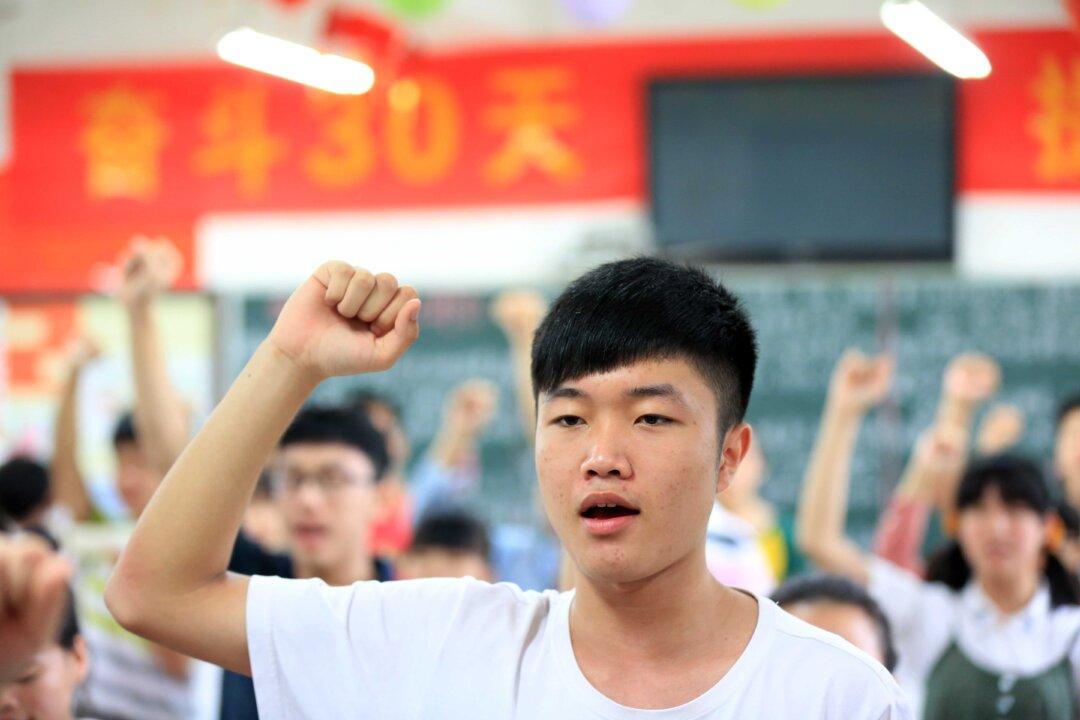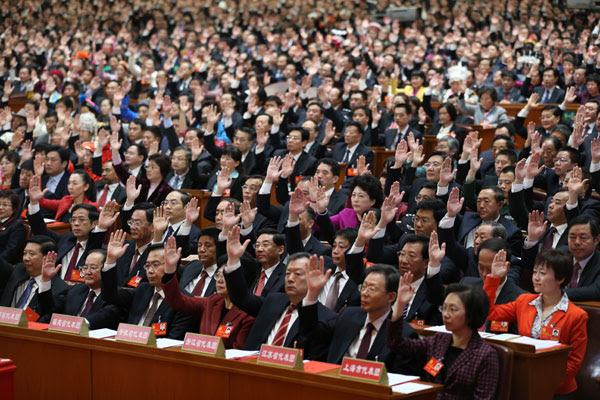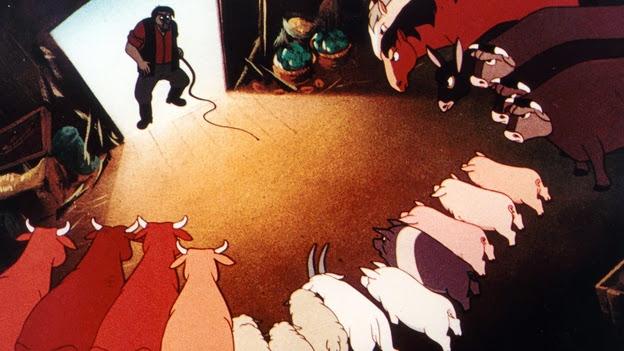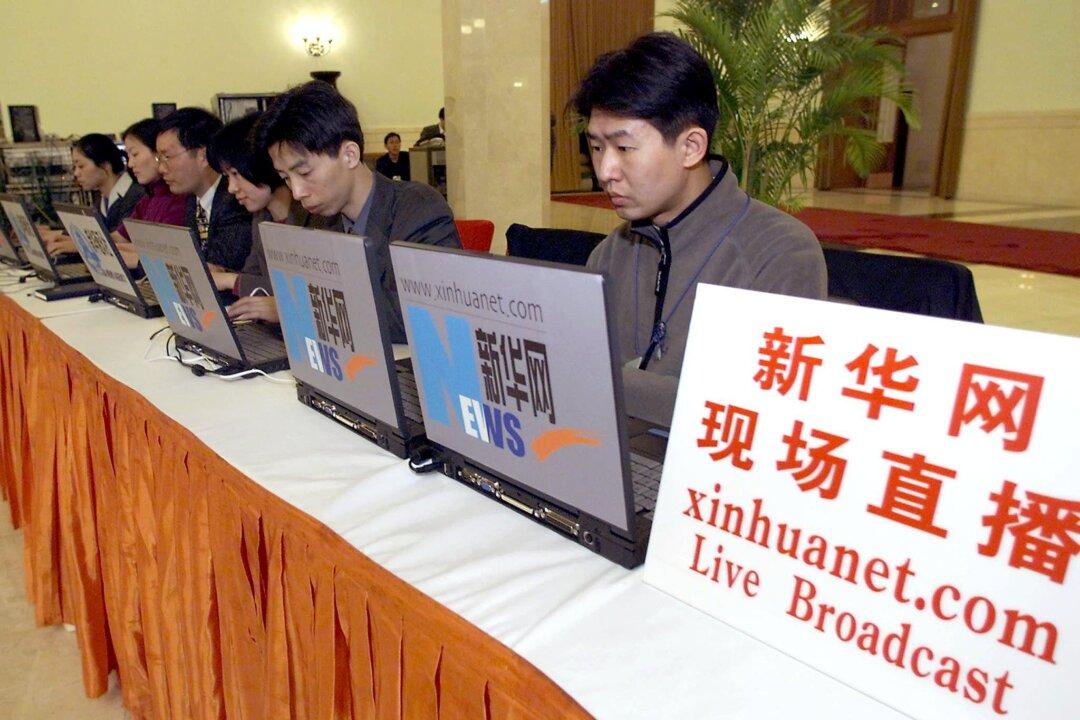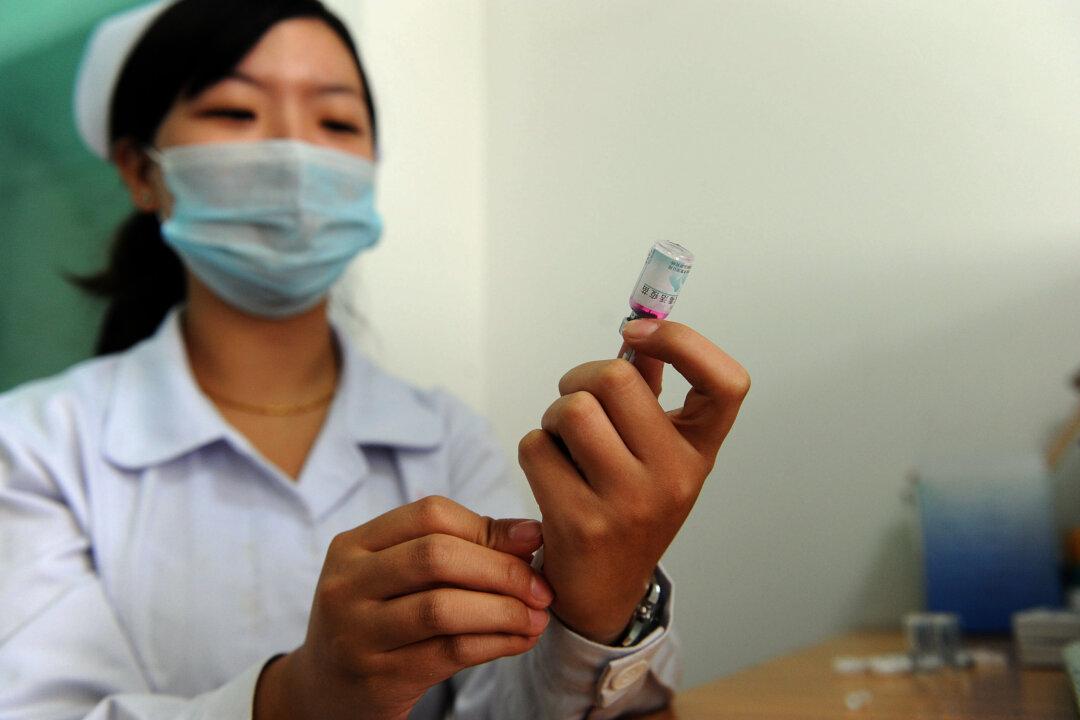On June 7, 8 and 9 of each year, around ten million Chinese high school graduates concurrently take an exam that most believe will critically determine the course of their lives: the gaokao, or National College Entrance Examination. For decades, it has loomed as the central—sometimes only—goal for Chinese parents and their children. As the exam approaches, high-schoolers are usually told: “From now on the only thing you should focus on is the gaokao.”

Students in a Shandong high school scattered their textbooks in relief, after completing the gaokao. Weibo.com
